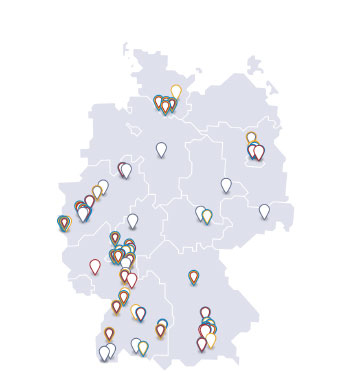Level of transparency in clinical studies
There has been a recent shake-up in the field of publication of clinical study results: EU and US organizations, even pharmaceutical companies, have all implemented or announced plans to expand their publishing practices.
 However, the communications about this sometimes appear contradictory. This is because it is not simply about "the study results": in fact, clinical studies and their results can be reported at quite different levels of detail.
However, the communications about this sometimes appear contradictory. This is because it is not simply about "the study results": in fact, clinical studies and their results can be reported at quite different levels of detail.
The following table list the types of study information, their level of detail, and how the procedure works in matters of transparency. It applies to clinical studies in Phases II, III and IV, which are conducted on patients (as opposed to studies in Phase Iwhich are typically conducted on healthy volunteers; it also does not apply to non-interventional studies, for which again other publishing rules apply).
| Document | Gives information on
(typical length) | Previous status | Future status |
| Trial registration | Drugs, sponsor, study design, sites, parameters, etc., no results
(1-2 pages) | Mandatory for some years now; e.g. in clinicaltrials.gov or clinicaltrialsregister.eu | unchanged |
| Summary of results for experts, online | Drugs, sponsor, study design, parameters, efficacy and tolerability in all study arms
(2 - 20 pages) | Summaries must be published for studies with EU participation [4] since approx. 2004 and for studies with US participation since approx. December 2007 (start date). This is required by the EU and the USA. The clinicaltrialsregister.eu register currently contains 12,683 summaries and clinicaltrials.gov 26,897 summaries (as at 06.15.2017) | unchanged |
| Summary of results for laypersons, online | Drugs, sponsor, study design, parameters, efficacy and tolerability in all study arms
(1-2 pages) | Short overview of the summaries of EPARs on the EMA website [1] | until 2019 at the latest [2], then on a new, publicly accessible EMA database |
| Publication in scientific journal [3] | Same as for the summary for experts, with additional discussion of results (5-10 pages)
(5-10 pages) | desirable, not mandatory | unchanged |
| Clinical Report (also called "Clinical Study Report") | Same but in yet more detail
(1,000 pages) | Study reports on drugs, whose EU authorization procedure started from the beginning (first authorizations) and middle of 2015 (authorization extensions), are published after completion of the procedure: clinicaldata.ema .europa.eu | the collection grows |
| Raw study data (= patient level data) | Complete treatment files, pseudonymized
(10,000 pages) | Disseminated if requested but no publication | unchanged |
[1] EPAR = European Public Assessment Report; EMA document which explains the reasons for the approval of every EMA-approved medicine, available here.
[2] The original plan was to implement this statutory obligation at EU level by mid-2016; however, there were delays in the setting up of the necessary web portal and the associated database by the EMA. The web portal and the database are legally regulated by the Clinical Trials Regulation, which makes provision for adjusting the deadline in the case of a delay.
[3] With peer review
[4] In the case of studies on minors, also without EU participation



